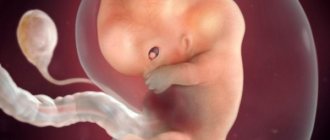A balanced diet for a pregnant woman is a necessary condition for the full development of the unborn child. Stick to the golden mean: overeating is just as dangerous as limiting calories. How can you control your weight while expecting a baby on your own?
The pregnancy weight gain calculator is a convenient online tool for a woman expecting a baby. Thanks to our counter, you will be able to understand whether your increase meets medical standards, whether you should change your daily diet and consult a gynecologist.
Result: You should have gained 0.5 kg and weigh approximately 50.5 kg
How weight is gained
At times, you may notice that kilograms increase unevenly throughout pregnancy. For example, in the first 2 months you may not gain weight at all, but on the contrary, even lose weight. In the early stages, women often suffer from toxicosis, and any word about food can cause disgust and vomiting.
Starting from 13–14 weeks, noticeable growth of the fetus and at the same time the tummy occurs. Further until the birth, the weight will increase, and the body will store the necessary nutrients for breastfeeding.
Weight gain by trimester
Equally important is the rate of weight gain by trimester and week of pregnancy compared to the total number of kilograms gained. So, in the first weeks after conception, weight may not increase at all. The fruit does not yet need additional nutrients; internal reserves are enough for it. During the first 13 weeks of pregnancy, intense weight gain does not occur; as a rule, women gain from 1 to 3 kg. It should be borne in mind that if toxicosis appears, then the movement of the arrow on the scales can be in one or the other direction. Although some expectant mothers “eat away” their nausea by almost constantly chewing something, gaining about 5 kg already in the first trimester. In the second trimester, their weight, as a rule, stabilizes, and growth resumes after 26 weeks. Others experience painful nausea and even vomiting, loss of appetite, and sometimes aversion to food. If there is a loss of body weight by more than 5% of the original, this is a reason to consult a doctor.
As a rule, by 20 weeks the expectant mother gains 4-5 kg. In the second half of gestation, there is a gradual increase in body weight by about 250-300 g per week, and after going on maternity leave - by 300-400 g.
Advertising
Why does weight gain occur during pregnancy?
Scientists have calculated what makes up the increase in kilograms.
- On average, the weight of the child is from 3 to 5 kg.
- The uterus, increasing in volume, reaches a weight of about 1 kg. The placenta, from which the baby receives the necessary nutrition and oxygen, weighs approximately 500 g.
- In the uterine cavity, the baby is surrounded by amniotic fluid, which provides him with protection from strong shocks and shocks; they weigh at least 1 kg. There are cases when a pregnant woman is diagnosed with polyhydramnios, then this weight increases, and the calculation is carried out individually.
- To provide the baby with the necessary amount of oxygen and nutrients, the volume of circulating blood increases by an average of 1.5 liters.
- The breasts increase by approximately 400-500 g. Additional water and fat deposition reach 2-5 kg.
Child's weight and changes
The weight that the fetus gains must be monitored throughout pregnancy. This indicator gives the obstetrician information about the development of the baby and allows timely detection of deviations in the course of pregnancy.
The approximate body weight of the embryo and fetus is determined during an ultrasound from the 8th week, for which special formulas are used. They take into account the circumference of the head and abdomen of the fetus, the length of the femur, the period from conception, and the biparietal size. In the later stages, to determine the baby’s weight, the doctor only needs to know the circumference of the mother’s abdomen and the height of the uterine fundus.
In the first trimester, the baby’s weekly weight gain is several grams; in the second trimester, the increase is hundreds of grams. From 11 to 17 weeks, the weight of the little person increases significantly (from 15 to 50 grams). After this period, the rate of growth slows down as the baby has to master skills such as moving his arms and legs. At 20 weeks, when most mothers have already felt the first movements, the baby’s body weight reaches 300-350 grams.
By week 25 this figure is 1200 grams. On average, before this period, every 7 days the baby gains 100-150 grams. By week 36 (the time when the newborn is fully viable), its weight reaches 2500-2600 grams. By the beginning of natural childbirth, the baby’s weight is 3300-3500 grams.
The following factors influence weight gain in newborns:
- Heredity (physique of parents). Children with broad-shouldered, stately mothers and fathers weigh more at birth than parents of average height and fragile build.
- Gender of the child. Typically, newborn boys weigh 200 grams more than girls.
- Repeated and multiple pregnancies. With each subsequent birth, the baby's weight in the womb increases. If twins are carried, the weight of each child at birth reaches 2800 g, and this is very difficult for the mother.
- Lifestyle of an expectant mother. If a pregnant woman does not limit herself in food, the baby’s birth weight will be higher than normal. Rich children are likely to develop obesity and diabetes in the future.
- Stressful situations, chronic illnesses of the mother. Stress can lead to both weight gain (“eating” problems) and weight loss. Chronic pathologies worsen during pregnancy, which interferes with the absorption of healthy calories and prevents weight gain.
- Toxicosis, smoking and alcoholism have a negative impact on well-being and interfere with normal pregnancy.
The dangers of overweight and underweight
In practice, it happens that a pregnant woman can suddenly gain weight, and this is not good. The body, working at this time for two, finds it difficult to adapt to such a sharp increase in body weight, and therefore problems may arise in the gastrointestinal tract, urinary system and heart.
It's even worse for those who gain excess weight beyond normal limits. Such kilograms do not allow organs to function properly. If a malfunction of the kidneys occurs, this will lead to fluid retention in the body, and then a more serious complication, such as gestosis in pregnant women.
A small gain in weight will also not bring anything good. In this case, the baby will lack nutrients and vitamins, which will affect his further development. In the early stages, this can lead to miscarriage.
Optimal amount of fat tissue
Human adipose tissue can rightfully be called one of the largest endocrine organs . Several decades ago, it was discovered that it is capable of synthesizing steroid hormones, including estrogens. In postmenopause, adipose tissue becomes practically the only source of estrogens - the main female sex hormones.
Fat is a metabolically active formation that constantly interacts with all body systems. During puberty, a girl experiences a sharp increase in the proportion of adipose tissue. So, for the first menstruation to appear, a girl must accumulate at least 17% fat. Not long ago, two important hormones produced by adipose tissue were discovered - leptin and ghrelin , which are directly involved in the formation and regulation of menstrual function.
To maintain normal body weight, adipose tissue and the brain exchange complex hormonal signals that affect appetite, food absorption, energy expenditure and weight.
The hormonal balance in the body can be indirectly judged by the ratio of waist to hip sizes. An indicator of 0.68-0.7 is considered optimal for a woman. These are signs of a “correct” figure, and they tell doctors that this woman’s metabolism (mainly estrogen levels) is normal. Therefore, a change in the amount or disturbance in the distribution of adipose tissue indicates one or another hormonal disorder.
Calculation of body mass index in pregnant women
Pregnant women are afraid of gaining a lot of weight and may start following a diet that will not be beneficial for the health of the unborn child.
By calculating your body mass index, you can calculate your rate of increase. To calculate BMI, you need to divide your actual weight (kg) by your height (m) squared. This way you will get the maximum weight that you can gain during pregnancy without harming yourself and the fetus.
If you have any doubts or concerns, consult your doctor. The child will develop normally and feel good if the growth of body weight occurs smoothly.
If you are just planning a pregnancy, then immediately calculate how many kilograms you can gain safely based on your BMI.
- If your BMI is less than 18.5, you can safely gain up to 18 kg during pregnancy.
- If your BMI is between 18.5 and 24.9, you can gain up to 16 kg.
- With a BMI of 25-29.9, feel free to gain up to 11 kg.
- If your BMI is more than 30, then you can only gain up to 9 kg.
Fat before and after conception
Both excess and deficiency of adipose tissue can significantly affect a woman’s ability to conceive. Obesity is a serious problem in infertility. It is known that excess body weight leads to disruption of egg maturation, interferes with ovulation, leading to menstrual irregularities and infertility. At the same time, excessive weight loss with a decrease in the specific gravity of fat to 13% leads to disruption of the synthesis of sex hormones and, as a consequence, amenorrhea (absence of menstruation).
The percentage of fat in the female body is much higher than that of men: it is 20-29% of body weight versus 18-20% in the stronger sex.
When pregnancy has already occurred, conditions are created for the additional development of fatty tissue, the biological meaning of which is to protect the fertilized egg and the fetal sac. The deposition of adipose tissue mainly occurs in the area of the mammary glands, buttocks, thighs and abdomen. To ensure the survival of the fetus and mother in case of unforeseen circumstances (the onset of famine), it is necessary to create fat reserves . Every woman’s body is evolutionarily tuned to this, and you shouldn’t fight it.
Let's weigh ourselves correctly!
Are you happily expecting a baby, and weight gain is a sore point? Then calculate the individual rate of increase; there is a special formula for this. But first, remember - you need to weigh yourself correctly! It would seem that it would be difficult to simply step on the scale, but even such an easy task has its own little tricks:
- You shouldn’t weigh yourself every day, much less several times a day; you’re not an athlete who gains weight before a competition and values every gram. The optimal interval between weighings is one week, no less.
- It is better to step on the scale immediately after waking up, before your first meal or drink.
- Weigh yourself in the same clothes, then the results will be as accurate as possible.
- Get a notebook and write down your results.
- A pregnant girl will also be weighed in the antenatal clinic, at every scheduled appointment with a gynecologist. The final weighing is carried out before childbirth, it is at this moment that the final weight gain is recorded.
In addition to the general rate of weight gain, there are optimal indicators for each individual trimester:
- First trimester (1-12 weeks): up to 2 kg per period.
- Second trimester (13-24 weeks): up to 1 kg per month.
- Third trimester (25-40 weeks): up to 400 grams per week.
Watch the recording of the webinar “Pregnancy under control: EVERYTHING an expectant mother needs to know” (free in ViLine.Club)
Third trimester of pregnancy
15.07.2021
The third trimester of pregnancy is the time when you watch your belly grow at an incredible rate. This is mainly due to the intensive growth of the child. By the beginning of the third trimester, the fetus looks like a newborn, except that it is very small and thin. However, at the end of the pregnancy he is quite a chubby baby.
Fetal development in the third trimester of pregnancy
During the last three months of intrauterine development, the child primarily improves the respiratory system and nervous system. At this stage, the fetus already knows the mother and the people around him very well, if they often talk in your environment.
The mother's voice has been shown to have a calming effect on the fetus as it can lower the heart rate. During this period, most children also adopt a head-down position, which is optimal for childbirth .
Considering that during this period the child develops very intensively, you need to carefully monitor what and how much you eat. The fetus's need for nutrients, vitamins and minerals is very high. It takes large amounts of calcium and iron from your blood , which it needs on a regular basis.
Preterm birth in the third trimester
A child born even at the beginning of the third trimester has a chance for proper development. However, if you do give birth before the 37th week of pregnancy , your baby will be premature and may have problems adapting to extrauterine life, especially in the respiratory system.
To reduce the risk of this type of difficulty, the mother should be given a course of steroid therapy of pregnancy and until the end of the 34th week if an increased risk of preterm birth (for example, in women with cervical insufficiency ) .
Steroid therapy is a series of intramuscular injections containing a steroid drug given over two days. These medications are harmless to the baby; on the contrary, their task is to accelerate the maturation of the respiratory tract so that they are ready to begin their functions after childbirth much earlier than expected.
Ultrasound in the third trimester
It is very important to remember the last recommended ultrasound , which is between the thirtieth and thirty-second weeks of pregnancy . In this study, the doctor must first assess the rate of fetal growth. The doctor measures the length of the femur , abdominal , and head circumference, and an ultrasound machine or special computer program estimates the baby's weight based on these measurements.
If the fruit's weight is between the 10th and 90th percentile, it is said to be eutrophic, meaning not too big and not too small.
If the fetal weight is below the 10th percentile, talking about malnutrition, which is too slow growth and you should find out why this is so. It is necessary to determine whether the child is small for genetic reasons (for example, both parents are short and their birth weight is low) or whether the reason for slower growth is an insufficient placenta.
It is also necessary to monitor the well-being of the fetus by performing regular tests : CTG, Doppler ultrasound and checking the child’s weight (usually every 2 weeks) .
If, on the other hand, the baby's estimated weight turns out to be exceptionally high, above the 90th percentile, it is recommended to have another ultrasound scan in a few weeks. If the baby continues to grow so rapidly, the doctor will consider inducing labor to increase the chances of a natural birth .
Wellbeing in the third trimester
While the first trimester was a period of rapid hormonal changes, often leading to malaise, sleepiness and digestive problems, the third trimester is where you'll primarily suffer the effects of your belly at a breakneck pace.
Performing daily activities will become more and more difficult due to the increasing heaviness in movements. Not only the belly , but also the breasts . The uterus puts pressure on the diaphragm, making it difficult to take deeper breaths.
Meanwhile, the need for oxygen will increase as you breathe for yourself and for the rather large person growing inside you. heart beating , which is now working more intensely. Heartburn will reach its peak, as it is now promoted not only by the hormonal changes typical of pregnancy (high levels of progesterone, causing the esophageal sphincter muscles to relax), but also by pressure on the abdomen of the uterus .
Constipation can also become a more serious problem. Many women experience swelling in their legs and arms during the last weeks of pregnancy . They appear especially in the evenings and on hot days. As long as these swellings are not very severe and disappear after resting in a supine position, there is no need to worry about them.
However, if you find that your body is suddenly noticeably swollen not only at the ankle and lower leg , and you have gained several kilograms in a few days, you need to quickly contact your doctor so that he can rule out a serious pregnancy , which is the condition of preeclampsia.
The fetal head, which in most cases is already lowered in the last weeks, puts pressure on the bladder . This means you need to go to the toilet more often and this can lead to uncontrollable urine .
The pressure of a significantly enlarged uterus on the pelvic veins can lead to the development of anal varicose veins, that is, hemorrhoids , which may bleed when passing stool.
Toward the end of your pregnancy , you may experience less burdensome conditions that also affect your well-being, such as hip pain , back pain , or a feeling of painful pressure on the symphysis pubis. You may also notice that your gums bleed from time to time. Don't worry, this is not a pathology, but a normal pregnancy caused by swollen gums due to hormonal changes.
breast milk leaking several weeks before giving birth . If this is causing your underwear to stain, purchase special nursing pads that fit into your bra to absorb the secretions.
Unfortunately, an enlarged belly inevitably causes increased tension in the skin, which in women who are predisposed to it begins to crack at some point. This produces an image of red streaks resembling a scar. Stretch marks will become lighter and less noticeable over time, but they cannot be completely removed.
It is worth lubricating your stomach , buttocks, thighs and breasts with an anti-stretch mark cream intended for pregnant women from the very beginning of pregnancy , but you should know that if you are prone to them, stretch marks will definitely appear, only there will be fewer of them than if you were nothing did.
All of these ailments and ailments that appear in the third trimester, along with high levels of certain hormones , can make you feel worse. However, don't worry because in a few weeks you will see wonderful rewards for your endurance and most problems will disappear very quickly after giving birth . In the third trimester, you will feel your baby's movements more and more intensely.
Monitoring fetal movements is very important when it comes to monitoring fetal well-being. You should pay close attention to your movements, especially during the last few weeks of pregnancy . OB / GYN emergency department .
Uterine contractions in the third trimester
During the last dozen weeks of pregnancy uterine contractions may occur . After the twentieth week of pregnancy , the uterus begins the “exercise” for childbirth . These are called Braxton Hicks contractions.
Braxton Hicks contractions are irregular and painless, unlike contractions that occur at least once every 10 minutes, they are painful (pain in the lower abdomen , lower back , or painful tightness in the entire abdomen ) and can only be assessed by a gynecologist .
Gradually, as the weeks of pregnancy , Braxton Hicks contractions will appear more and more frequently. Don't worry about them. Once you know what they are, you can easily distinguish them from the action of birth at the right moment.
Published in Pregnancy and pregnancy management Premium Clinic
Don't eat too much, you won't give birth!
“If you gain little, it’s bad”, “Eat too much, you won’t be able to give birth” - this is how they scare the expectant mother. Even doctors swear that the woman is gaining weight too quickly.
Some girls do not gain weight until the last months, while others begin to plump up already in the first trimester. The final gain is different for all pregnant women. But there are norms for increase, which is considered optimal for both the health of the baby and the woman. Here is this treasured figure:
An increase of 9 to 14 kg is considered normal - if there is only one fetus, and from 16 to 21 kg - if you are expecting twins or triplets. These are average data, in reality the weight may be slightly more or less.
Download the “Pregnancy Calendar by Week” checklist and monitor your baby’s development!








